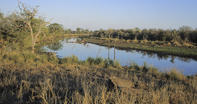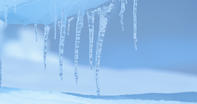Well Travelled Water
When the well's dry, we know the worth of water. Quote by Benjamin Franklin, Poor Richard's Almanac, 1706 - 1790. Let's look at a hypothetical fish tank, for a minute, to consider just how ancient and well-travelled its contents are.

One molecule of water - that tasteless coalition of two hydrogen atoms and one oxygen - might be flung down in a snowflake over Antarctica during a storm, locked away in a glacier for millennia before being cast adrift in the Southern Ocean in an enormous chunk of bobbing ice. This will melt, freeing the molecule to swirl about in currents for decades, centuries even.
A chance encounter with the right conditions might see it sucked up by the skies, gathered into clouds and swept towards the Cape peninsula during a particularly black South-Easter. The mountains will harvest the front's mist, channelling droplets of water from the frilly edges of its vegetation, down the mountainside, into a municipal reservoir, through a network of often-leaking pipes and into our hypothetical tank.
A Water Molecule

The point of this frolic through the natural history of a water molecule is this: who, on Earth, can claim ownership of that bit of water, which has shape-shifted between solid, liquid and gas more times than can be counted?
This molecule is part of the global commons - those massive bodies of natural resources upon which we all depend for survival and which operate outside of any manufactured notion of ownership which modern humans have formalised in the form of title deeds and property rights.
By Leonie Joubert